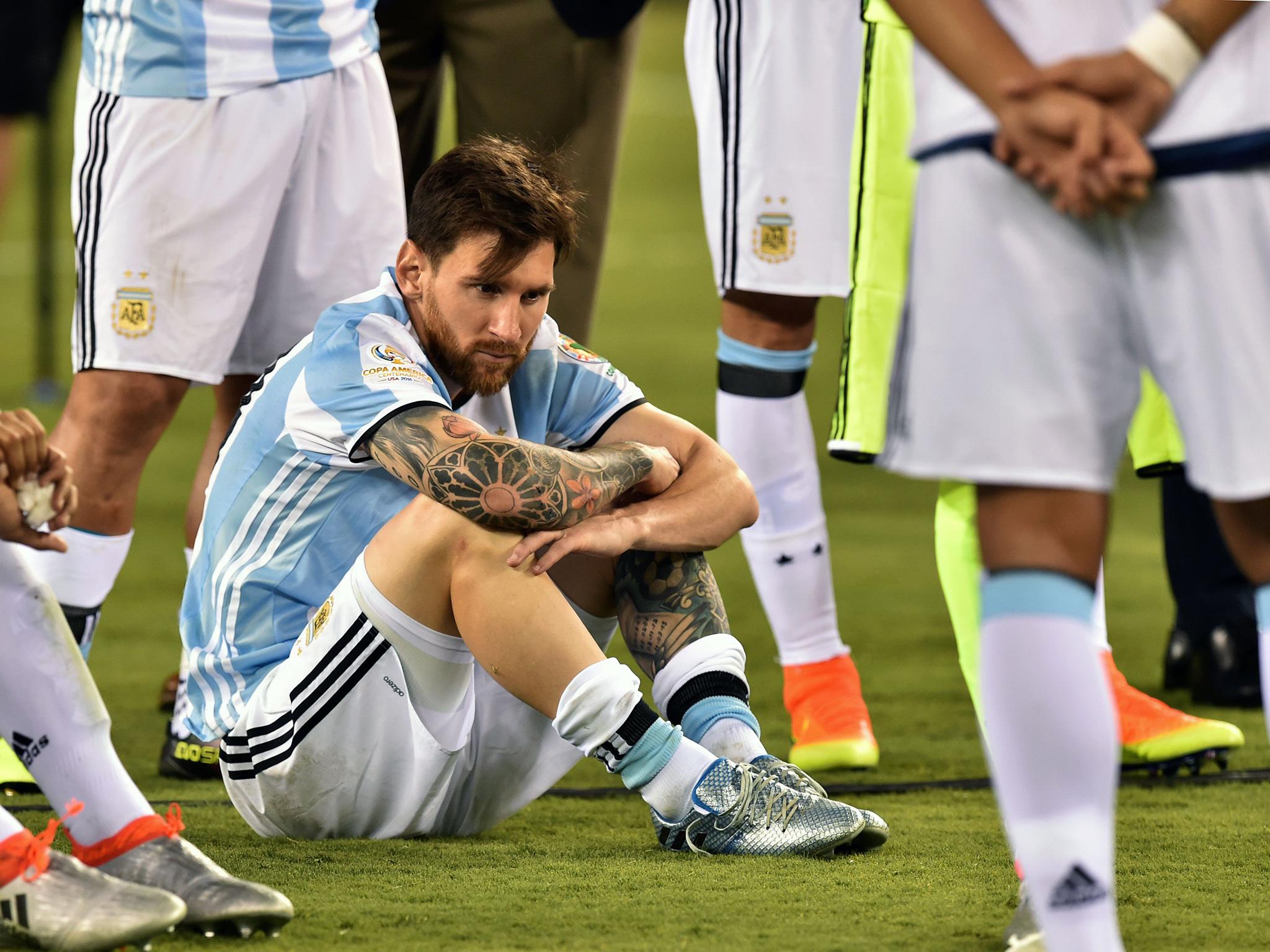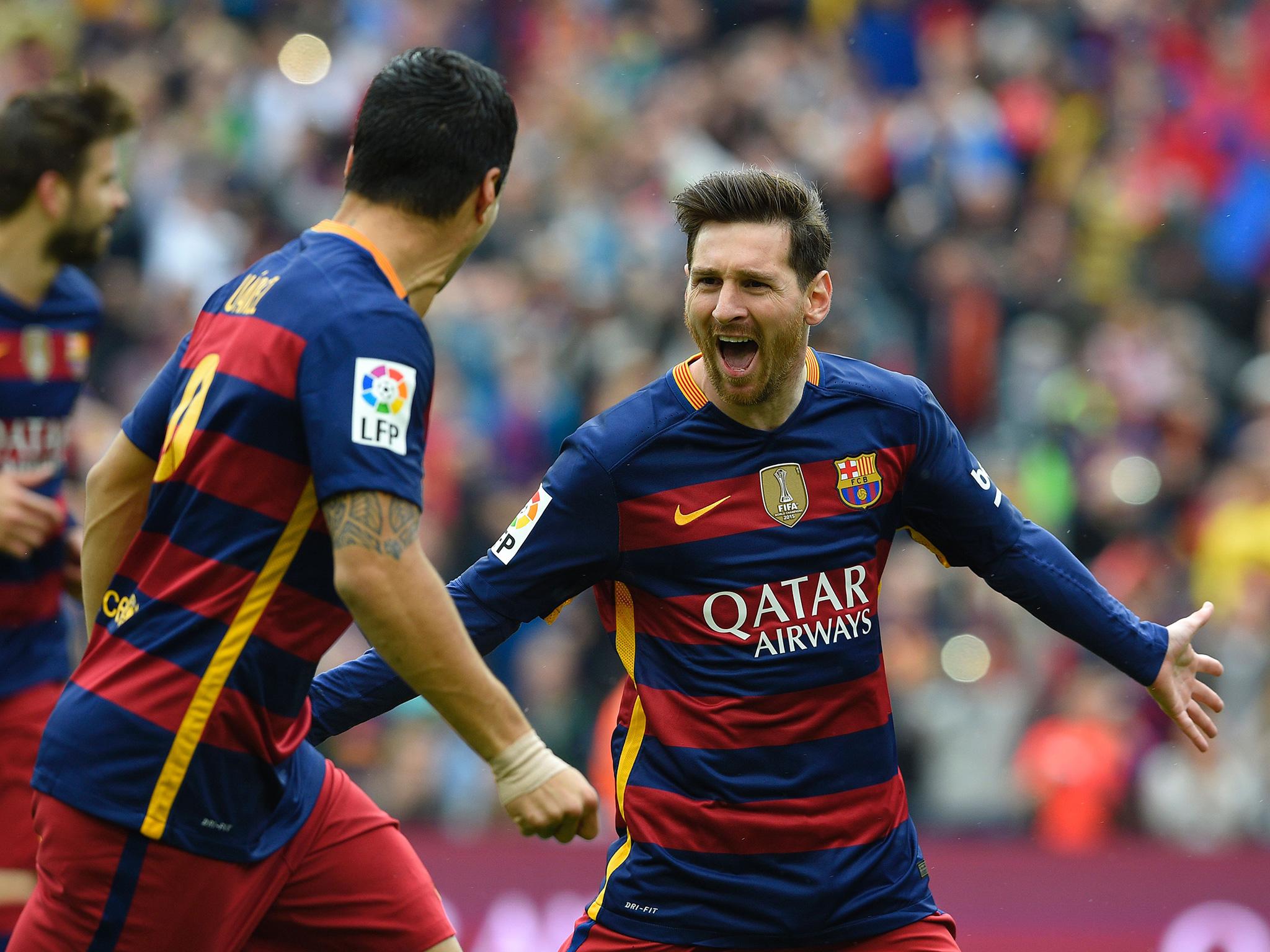Lionel Messi retires: Argentina forward's three seasons of non-stop football meant something had to give
The 29-year-old's international exit will give him the rest he needs to prolong his club career

Your support helps us to tell the story
From reproductive rights to climate change to Big Tech, The Independent is on the ground when the story is developing. Whether it's investigating the financials of Elon Musk's pro-Trump PAC or producing our latest documentary, 'The A Word', which shines a light on the American women fighting for reproductive rights, we know how important it is to parse out the facts from the messaging.
At such a critical moment in US history, we need reporters on the ground. Your donation allows us to keep sending journalists to speak to both sides of the story.
The Independent is trusted by Americans across the entire political spectrum. And unlike many other quality news outlets, we choose not to lock Americans out of our reporting and analysis with paywalls. We believe quality journalism should be available to everyone, paid for by those who can afford it.
Your support makes all the difference.Lionel Messi played 49 games for Barcelona last season, 57 the year before and 46 in the campaign prior to that.
All three seasons were interrupted by the muscle injuries that have proven to be the only thing capable of stopping the Argentine from wreaking havoc on opponents for both club and country – until now.
Having seen his spot-kick sail over the crossbar at the MetLife Stadium in the Copa America final penalty shoot-out against Chile last night, Messi saw his, and Argentina’s, hopes of a first continental title since 1993 evaporate into the New Jersey sky.
And after shouldering the burden of inspiring his country to glory during 113 appearances, in which he scored a record 55 goals, the 29-year-old concluded that enough was enough and that his unsuccessful spot-kick against Chile would be his final contribution on the international stage.
When even Lionel Messi displays the signs of wear and tear and emotional fatigue while playing for his country, it should set alarm bells ringing across the world game – alarm bells which have also been increasing in volume during Euro 2016.
The absence of an outstanding team or player in France – none of the so-called stars of the European game have so far grabbed centre stage – highlights the challenge facing international football in terms of enticing the best from the very best.
Messi has called it a day with Argentina because something simply had to give.
He rarely missed a game for Barcelona when fit, but during those stages of the season when a break may be required or necessary, he hops on a plane to South America for World Cup qualifiers or friendlies before hopping back across the Atlantic to continue where he left off with Barcelona.
It results in a constant churn – a never-ending cycle of high-intensity football and, when leading his country, the crushing weight of expectancy.
But when you are as in demand as Lionel Messi, for club and country, the football season becomes an eleven month test of endurance.

Not since the summer of 2013 has he enjoyed what could be described as a free summer.
In 2014, he led Argentina to the World Cup final, before losing to Germany in Rio de Janeiro. Last summer, he was involved with Argentina as they progressed to the Copa America final against Chile, before losing to the hosts in the final in Santiago.
And on Sunday night, thanks to the staging of a centenary Copa America just 12 months after the previous competition, Messi and Argentina lost out again to the Chileans in the United States.
Messi has now endured three seasons and three summers of constant football.
Had Argentina won on Sunday evening, he would have faced a trip to the Confederations Cup in Russia next summer before returning 12 months later for the World Cup.
It is too much to demand of any sportsman, but France 2016 shows that it is not only Messi who is being ground down by excessive football.
A bloated tournament at the end of a lengthy season has taken its toll on the likes of Thomas Muller, Robert Lewandowski and Zlatan Ibrahimovic, who have all failed to translate their prolific club form onto the Euro 2016 stage.
They have all travelled to France after performing for teams who won domestic titles and progressed deep into the Champions League, just like Messi with Argentina, and their legs are buckling under the strain.
Gareth Bale, who has enjoyed a stunning tournament in France after a long, hard season with Real Madrid, is so far proving to be an exception, but do not under-estimate the influence of adrenalin and excitement that comes with playing from a country unaccustomed to performing at a major tournament.
The joy of the new is driving Bale on, but for Messi and the rest of those players who perform for superpower clubs and heavyweight nations, national service is becoming a debilitating experience.
Domestically, both Paul Scholes and Alan Shearer extended their club careers into their late-30s at Manchester United and Newcastle respectively after retiring from England duty at a relatively young age.
They stepped out of the pressure cooker environment that comes with combining club and country and Messi has now decided to do the same.
He will be missed, and Russia 2018 will be so much poorer without him, but if his international retirement sees him grace the Champions League stage for two, three or even four more years as a consequence, who can blame him?
Join our commenting forum
Join thought-provoking conversations, follow other Independent readers and see their replies
Comments